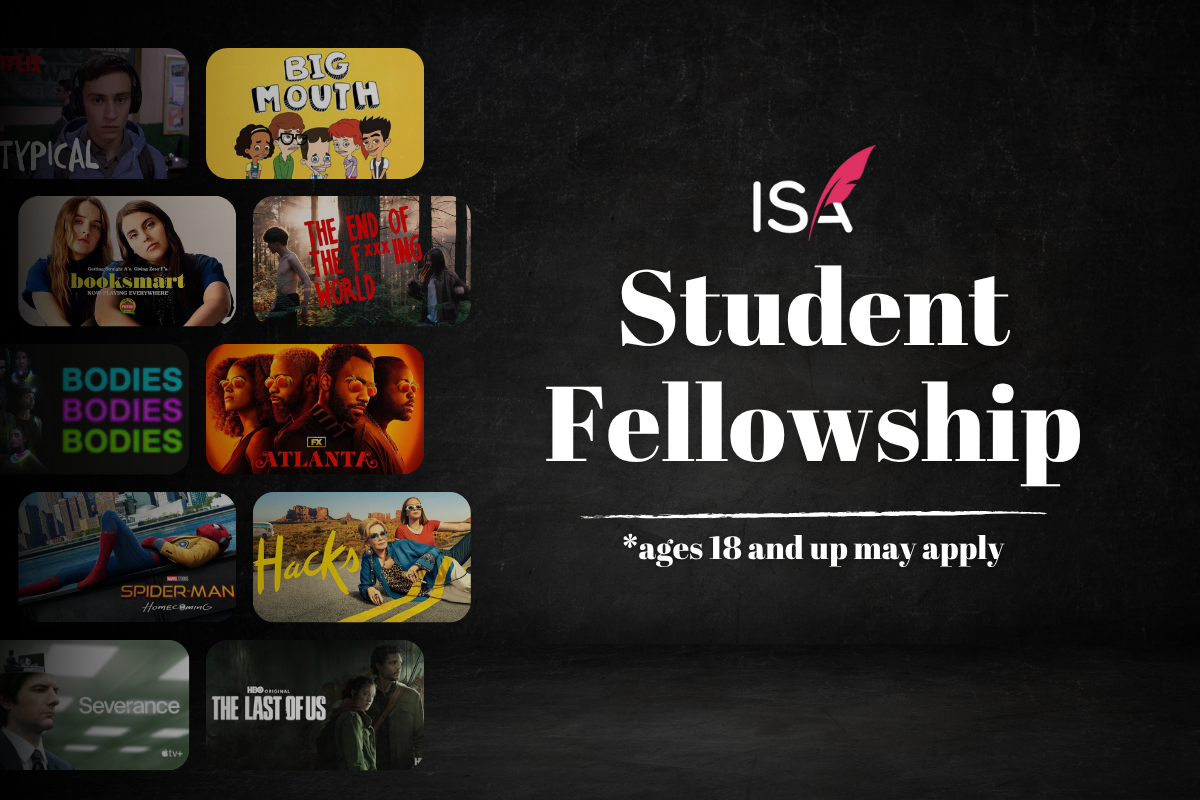WRITERS ON WRITING: Who You Know
Industry executive and writer Robin Schorr shares her path to breaking into the business in our look back into the Script magazine archives.
Editor's Note: We often dive into our archives to find information that's still relevant to your screenwriting career. Today, we step back in time to read the advice of Robin Schorr, past president of production at LionsGate's Sobini Films. Currently, Schorr heads her boutique production company, Schorr Pictures.
Robin Schorr works closely with her writers. She enjoys the written phase of the moviemaking process because she knows how scribes operate. Why? Because this successful producer considers herself a failed writer.
As president of production at Sobini Films (a production company that has a first-look agreement with Lions Gate Films), Schorr constantly partners with writers—staying closely involved with every phase of the story development process. This graduate of the UCLA film school produced or executive produced such films as Under Heaven, Skipped Parts, Attraction and The Prince & Me, so she knows the rigors through which a story has to go before it’s ready for an audience.
After her undergraduate work, Schorr traveled for a year before finding a job as a line producer on a show for MTV, The Cutting Edge. The program made music videos for the MTV alternative music show.
“I went to UCLA film school and made a short film that won a lot of awards,” Schorr said from her Santa Monica office. “I got a lot of meetings off that with agents and managers. But, I got a horrible case of writer’s block. So, I thought I was failing at the meetings I was getting and wasting whatever amount of buzz I had going.”
After a year of procrastinating on her own screenplays, Schorr got a development job at a now defunct production company, Sandollar Productions: “At that job I knew I’d found my calling because I hadn’t realized that there were these other jobs that were also creative. You could have an important role in the making of a film, but you didn’t have to be the writer or director.”
From Sandollar, Schorr moved to Winona Ryder’s Fox-based production company Dreamlover Productions for a brief time. She also served at Fox Night at The Movies, Laurence Mark Productions as vice president of production and Kennedy/Marshall as senior vice president of development.
“While I was at Kennedy/Marshall, there was a side project I brought with me from Laurence Mark called Under Heaven. I got financing for that movie and produced it. We went to Sundance and got a release with that.”
Schorr explained that she always had an affinity for smaller and more intimate movies and decided to pursue that. She became head of production at Trimark Pictures, one of the last independent studios. When Trimark was bought out by Lions Gate two years later, she remained onboard to complete her work on the Bill Paxson film Frailty.
Mark Amin, the former owner of Trimark, invited Schorr to help start Sobini Films. The company’s first project was The Prince & Me—a project co-funded by Lions Gate and Paramount.
Upcoming movies for Sobini include Julia Pastrana (starring Ashley Judd), The Guided Man and Way of The Peaceful Warrior (based upon the best-selling novel).
“Having straddled both the studio and independent film worlds, I decided the indie philosophy is the only way to maintain any creative or financial control over your movie,” Schorr said. “We have our own money for development, so we develop on our own. We don’t develop at the studio—by choice. I worked in that system for years, and I don’t believe that’s the best way to work. Developing movies at the studios means the ratio of movies developed to the movies made is enormous.
“I’d rather spend money to work with a smaller number of the right writers and be a little more picky when it comes to material to maintain control of the project.”
With that idea in mind, Schorr and Sobini Films pursue scripts with the primary goal of making a movie at the end of the development process—unlike the studios that acquire larger amounts of material while looking for possible films to make.
Schorr added, “You can have a strong batting average on scripts if you choose your writers carefully and work with them.
“I spend a lot of time on outlines and make sure that the writer knows the story thoroughly before it moves into the script stage. We had five or six very thorough outlines before we moved forward to write The Prince & Me.”
She continued, “Having been a failed writer, I think I have insight and a talent for working with writers and developing stories. It’s not an exact science, but I worked with companies in which we hired a writer without knowing what he was going to do before we hired him. Then, we were disappointed with the results. What did we expect when we weren’t involved in the process?”
As someone who is quick to criticize her own writing ability, Schorr carries an appreciation for writers into her development work as a producer.
“Everything starts with writers. The most valuable thing I do is sit and meet with my writers. You find out who the good writers are, and what they want to write.
“I have a lot of respect for what writers do. But, to make sure as a producer that they know what they’re doing for you, I think you have to be involved with them throughout the stages of their work. I have trust in my writers, but you have to agree on the story beforehand.”
Schorr added, “I can’t imagine delegating the job of working on the drafts or working closely with the writers. I might as well have someone else produce my movie. I will take that attitude in my work throughout my career as a producer no matter where I go or where I work.”
JOHN SCOTT LEWINSKI’S book, Alone in a Room: The Secrets of Professional Screenwriters, is available from Michael Wiese Productions: Mwp.com. Lewinski was a featured screenwriter at the 2003 Cinestory Script Sessions with his award-winning script Slabtown. Twitter: @johnlewinski
Get your free screenwriter networking tips from our editor to build an online and offline network to advance your screenwriting career.
Join the Script newsletter where you'll find tips and inspiration for a successful screenwriting career.
Top screenwriting and film publication, founded in 1989, published by Active Interest Media. Twitter: @scriptmag







